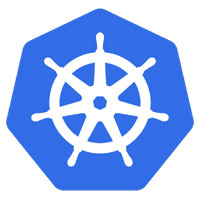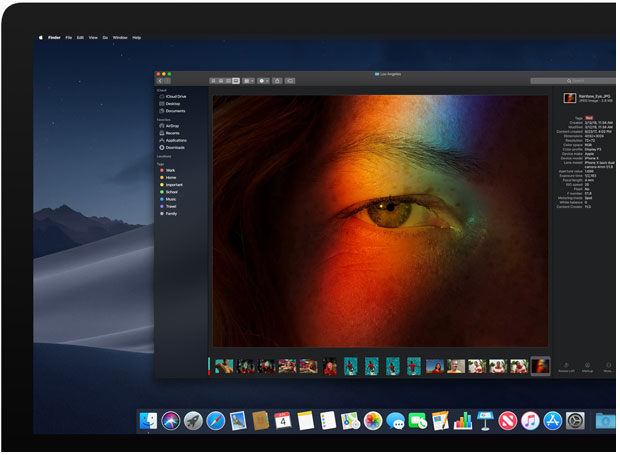
Google on Wednesday introduced the rebranding and enlargement of its Cloud Launcher platform. Going ahead, it is going to be referred to as the “Google Cloud Platform Market,” or “GCP Market.” It’ll be offering production-ready industrial Kubernetes apps, promising simplified deployment, billing and third-party licensing.
Google’s function is to make packing containers available to everybody, particularly the endeavor, in step with Anil Dhawan, product supervisor for the Google Cloud Platform.
When Google launched Kubernetes as open supply, one of the vital first demanding situations that the business tackled used to be control, he mentioned.
Google’s hosted Kubernetes Engine looks after cluster orchestration and control. A larger problem to getting apps working on a Kubernetes cluster could be a handbook, time-consuming procedure. GCP Market supplies prepackaged apps and deploys them onto any cluster, Dhawan famous.
Google makes the method more secure through trying out and vetting all Kubernetes apps indexed on GCP Market. That procedure contains vulnerability scanning and spouse agreements for upkeep and strengthen.
The safety umbrella extends to all answers to be had throughout the market. That comes with digital machines, controlled services and products, information units, software programming interfaces, and Tool as a Carrier.
The identify trade at one degree is only an effort to intensify the visibility of the Google Cloud Platform emblem and to indicate consideration to the brand new market for ready-to-deploy apps, steered Charles King, predominant analyst at Pund-IT.
“Preferably, it is going to transfer companies towards {the marketplace}, which means that builders will see advanced gross sales in their apps for GCP,” he informed LinuxInsider.
Extra At the back of the Transfer
In the end, Google’s endeavor cloud platform rebranding must make lifestyles more straightforward for other folks managing container environments, mentioned King. That would be the case particularly in the event that they occur to be finding out or taking into account apps to shop for and deploy.
“The have an effect on on hybrid/multicloud is just a little tougher to parse, regardless that,” mentioned King. “If the hassle succeeds, it must have an effect on Google’s GCP-related gross sales and industry for the simpler.”
Google’s advertising transfer might be essential for the way forward for hybrid and multicloud methods, mentioned Glen Kosaka, vp of product at Kubernetes safety company NeuVector.
“That is one in reality essential step against supporting and simplifying app deployment throughout clouds,” he informed LinuxInsider.
Additional, builders now have get admission to to apps that may spice up their very own apps with no need to fret about manufacturing deployment and scaling problems, famous Kosaka.
That are meant to be a large deal to many devs, he added.
“Container control of market apps now turns into extra simplified, and shoppers — the ones chargeable for container control — have the boldness that those Google Market apps are examined and suitable with their cloud infrastructure,” Kosaka mentioned.
Broader View Counts
Taking a look on the information in a strict and slim sense, Google’s motion seems to be little greater than a rebranding witha clearer, extra descriptive identify. That could be a moderately good transfer, steered Alex Gounares, CEO of Polyverse.
“From a broader standpoint, that is the proverbial tip of the iceberg round a chain of a lot larger business shifts to server-less computing and Packing containers as a Carrier,” he informed LinuxInsider.
For something, Google’s rebranded platform method adjustments for builders. Within the Web’s early years, you needed to construct your personal information facilities, and construct and arrange your personal packages. Successfully, the whole lot used to be hand-built, on-premises and dear, Gounares defined.
Then Salesforce.com got here alongside, and the Tool as a Carrier revolution used to be born. The similar apps might be run within the cloud and delivered by means of a Internet web page.
That ended in Amazon Internet Services and products and to different cloud services and products suppliers letting other folks successfully hire an information middle on call for — the Infrastructure as a Carrier revolution.
For the applying developer, bodily obtaining the *{hardware}* was trivial, however from a device standpoint, if truth be told getting the whole lot arrange, configured, and working necessarily used to be simply as sophisticated as working issues on premises, mentioned Gounares.
Giant Deal for Devs
Packing containers have revolutionized that. Now all the complexity of one thing like a database or content material control device or identical device can also be packaged in a neat little field, in step with Gounares.
That field can run along all of the different items wanted for a complete resolution. Configuration and control that used to take days or even weeks to perform now can also be carried out in one command line.
“Renaming the carrier to handle making one-click deployment of packing containers, and to open up new industry fashions for device platform era is a huge, large, large deal,” remarked Gounares. “It’s doing for device what Amazon AWS did for {hardware} and knowledge facilities.”
Deployment Components
A large benefit to packing containers is their portability throughout environments. Customers can expand their content material after which transfer their workloads to any manufacturing setting, famous Google’s Dhawan.
Google works with open supply Particular Pastime Teams, or SIGs, to create requirements for Kubernetes apps. This brings the experience of the open supply group to the endeavor.
Google’s enhanced cloud platform speeds deployment on Kubernetes clusters, Kubernetes Engine, on-premises servers or different public clouds. A Market window shows immediately within the Kubernetes Engine console. That procedure comes to clicking-to-deploy and specifying the positioning.
3rd-party companions expand industrial Kubernetes apps, which include strengthen and usage-based billing on many parameters, reminiscent of API calls, choice of hosts, and garage per 30 days.
Google makes use of simplified license utilization and provides extra intake choices. As an example, the utilization fees for apps are consolidated and billed thru GCP, regardless of the place they’re deployed. Then again, the non-GCP sources on which they run aren’t integrated, in step with Dhawan.
A Win-Win Proposition
It will be orders of magnitude more straightforward for builders to deploy each industrial and open supply packages on Kubernetes. The release of GCP Market solves issues round scalability, working in a digital personal cloud, and billing, famous Dan Garfield, leader evangelist at Codefresh.
“For instance, with Codefresh, our customers can deploy our hybrid agent on Kubernetes so they are able to construct on their very own clusters, get admission to code of their digital personal community, and invoice the whole lot thru Google,” he informed LinuxInsider. “As a 3rd occasion, this makes the billing PO approval procedure so much more straightforward with endeavor shoppers the place you in most cases need to develop into an authorized supplier.”
For the ones chargeable for container control, DevOps groups can devour “authentic” variations of device constructed for Kubernetes and stay them up to the moment, he added. That is particularly essential while you believe the safety problems other folks have had with Dockerhub.
“The GCP Market helps a lot more complicated device stacks, and you’ll be able to get the authentic programs relatively than no matter any person has constructed and driven to Dockerhub,” Garfield mentioned.
What’s To be had
GCP Market options standard open supply tasks which can be waiting to deploy into Kubernetes. Each and every app contains clustered pictures and documented improve steps. This makes them waiting to run in manufacturing. Packaged and maintained through Google Cloud, they put into effect best possible practices for working on Kubernetes Engine and GCP, in step with Google.
Here’s a sampling of one of the loads of apps featured at the GCP Market:
- WordPress for running a blog and content material control;
- InfluxDB, Elasticsearch and Cassandra for large information and database;
- Apache Spark for large information/analytics;
- RabbitMQ for networking; and
- NGinx for Internet serving.
An entire list of apps to be had at the GCP Market is to be had right here. No signup is had to view the whole listing of to be had answers.
Just right for Hybrid and Multicloud Too
The rest that creates an extra wave of cloud-native packages is in reality nice for all of the cloud market. This contains other public cloud distributors, personal cloud answers, or even edge computing distributors, in step with Roman Shaposhnik, VP for product & technique at Zededa.
“The platform can simplest be as a hit because the choice of killer apps that it hosts. This transfer through Google creates simply the proper of dynamics to get us the following crop of applicants for a killer cloud-native app,” he informed LinuxInsider.
Hybrid cloud and multicloud deployments nonetheless have some option to move, alternatively. What’s lacking is some way for seamlessly stretching container orchestrators throughout geographically far away places, steered Gaurav Yadav, founding engineering and product supervisor at Hedvig.
“Until we standardize container control operations throughout information facilities and cloud places separated through an unreliable community, true cloud-agnostic packages will at all times be onerous to materialize,” he informed LinuxInsider.
VMware was the de facto same old for digital gadget control as it took it out of the palms of admins, Yadav mentioned. VMware made it easy, computerized and scalable.
“For cloud-native packages, packing containers have the possibility of changing VMs as the usual for useful resource virtualization,” he steered. “That is simplest conceivable if we carry the complex features which have been constructed over a decade for VM orchestration to the container control. This announcement is the next move against this function.”
The Proper Transfer
Essentially, Google’s movements create an enormous incentive for builders to transition their apps to a cloud-native structure, mentioned Zededa’s Shaposhnik.
“I might be expecting all of those to begin being refactored and packaged for the GCP Market,” he mentioned, “and that could be a excellent factor that is going manner past speedy price on Google’s personal cloud. As soon as an software is refactored and packaged to be really cloud-native, you’ll be able to transition between other clouds — together with on-premises personal clouds — in a miles more straightforward model.”
For container control, it’s “but any other transfer in the correct route of constructing packing containers a ubiquitous, however totally invisible a part of the IT infrastructure,” Shaposhnik added.
The Backside Line
The adjustments that Google applied are excellent information for builders, mentioned Oleg Atamanenko, lead platform developer at Kublr.
“This can be a large step against simplifying the revel in when attempting new packages,” he informed LinuxInsider.
For IT control, however, the adjustments in Google’s GCP Market imply price aid, diminished time-to-market, and quicker innovation thru streamlining software set up, Atamanenko mentioned.
For builders, a transformation in identify method little, however the route Google has taken method a step ahead within the endeavor global, mentioned Stefano Maffulli, group director at Scality.
Nonetheless, there’s a down aspect, he informed LinuxInsider.
Bitnami, which has been pushing to be the packaging instrument to send packages to the clouds, added strengthen for Kubernetes early on.
“Now Google is making them much less related on GCP, which could be a danger,” mentioned Maffulli. “I’m wondering how lengthy Bitnami and Google will keep companions.”



